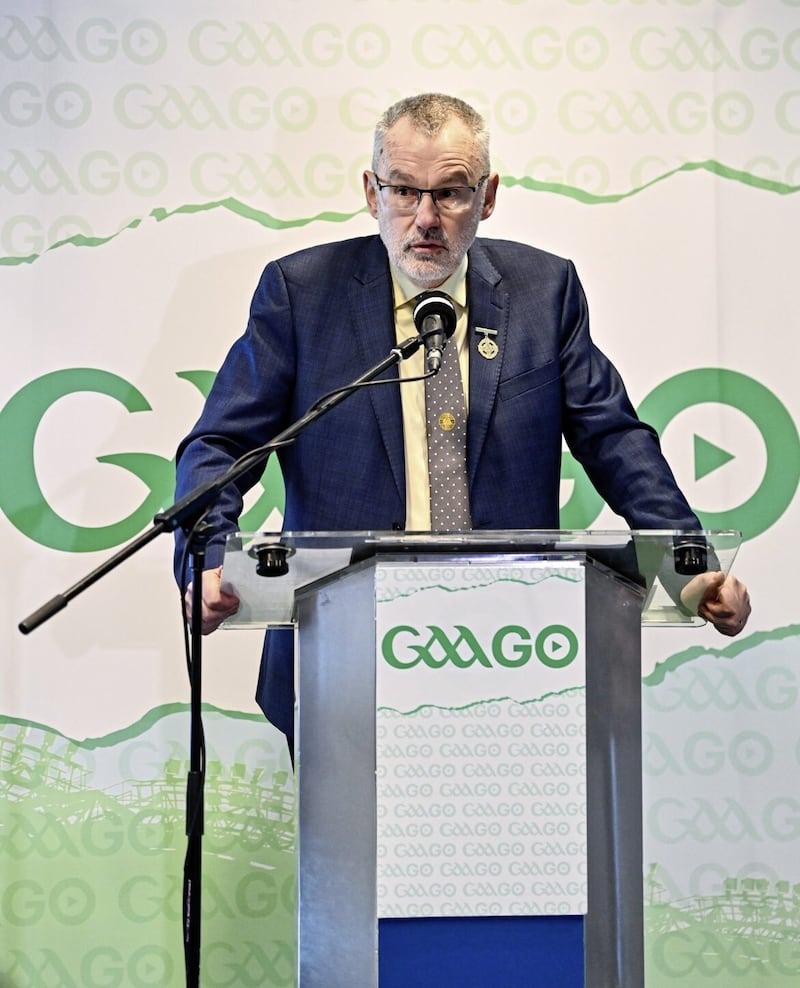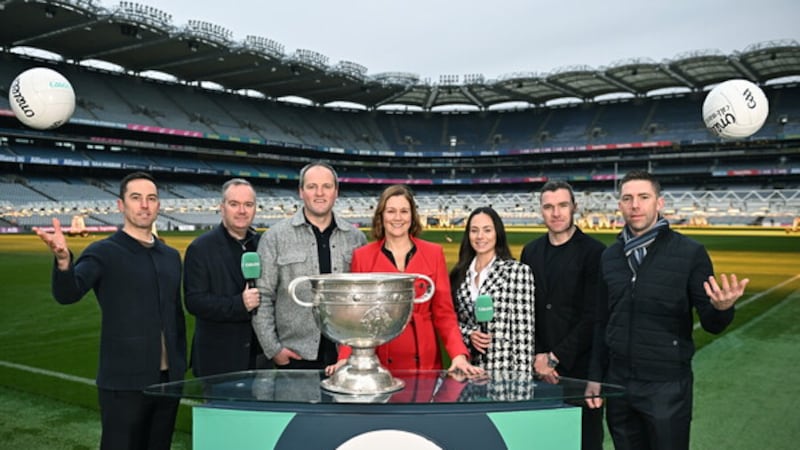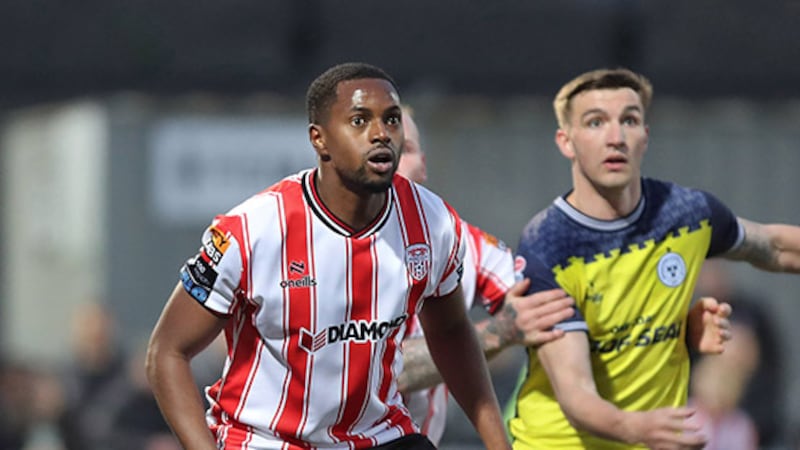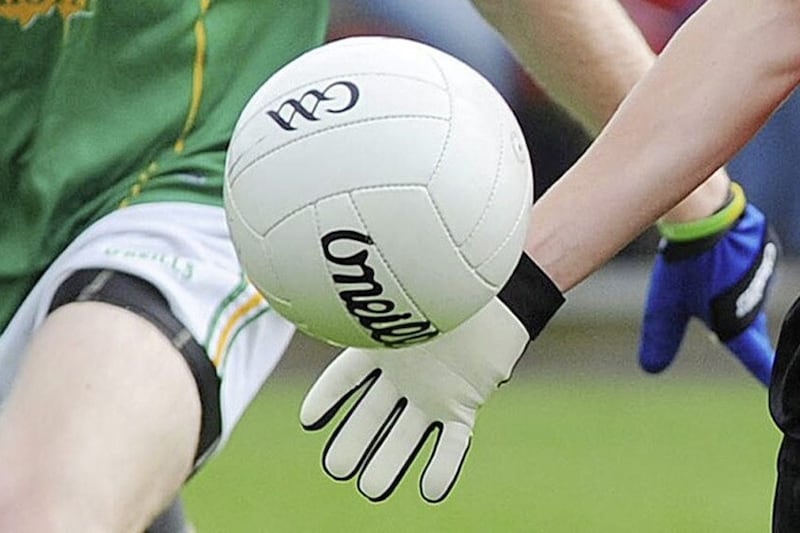TURNING back the clock doesn’t always bring the benefits one might think.
That ‘extra hour in bed’ we’re all supposed to enjoy in the autumn, when the clocks ‘fall back’ an hour, is something that tends to be denied to parents of young children.
The little blighters’ body clocks wake them at their usual time (strangely earlier at weekends than on schooldays), so in reality there’s an extra hour listening to their charming conversations about Pokemon and demands for something to eat every half hour.
- GAAGO chooses just one Ulster SFC game
- Cahair O'Kane: We're not ready for GAAGO, and it isn't ready for us
‘Turning back the clock’ in terms of sporting coverage wouldn’t be all that either.
Once again the announcement of the matches to be shown by GAAGO, essentially the GAA’s streaming service, has been greeted with complaints.
Some are unhappy with the cost. Others don’t like the matches that have been chosen for broadcast on this platform.
The method itself annoys some, arguing on behalf of hypothetical old people who apparently can’t access the matches on the internet.
Harking for a mythical golden age when all the major matches were free to air would only make matters worse – because there would be far fewer games shown.
The real problem (if it is a problem) is that there are far more Championship matches nowadays.
You can’t logically claim that they’re all big games which should be free for everyone to see.
The GAA is often, with some justification, accused of being elitist – but GAAGO is going to show seven Tailteann Cup games; that’s almost as many from the second tier of the football championship as from the main event in that code.
Demands for more of these GAAGO matches to be shown on terrestrial television – aka RTE – would satisfy some, sure, but would also antagonise others. Notably those who feel that there’s far too much sport on TV already, a section of society perhaps crossing over with those who get irked when their expected viewing is instead interrupted/ taken over completely by action from a GAA game.
No doubt there would be some outcry about RTE’s use of its licence fee income from the public.

In a classic case of ‘Don’t shoot the messenger’, those gurning about GAAGO showing three matches involving Cork’s hurlers in the Munster SHC should actually have been praising the streaming platform.
GAA President Larry McCarthy set out the circumstances around selecting matches to be shown: “RTÉ contractually picked games for those particular Sundays and if we don't show them on GAAGO they're not shown.
"The CCCC [central competitions control committee] set the fixtures, the provincial councils set the fixtures as well. Then, as a consequence of those fixtures being made, RTÉ make their picks.
“And then essentially what we're doing [with GAAGO] is that we're taking on those other games, we're taking those games that Cork fans would not see unless we show them.
There’s the further twist that the GAA President was, to some extent, re-directing those fingers of blame at RTE Sport while, er, speaking to RTE Sport about, um, the benefits of a company [GAAGO] part-owned by – checks notes; checks notes again – RTE Sport.
We may not quite be through the looking glass, but first impressions/ complaints don’t necessarily reflect reality.
Similarly, older people can learn about technology, and have done. I myself discovered the other day that the clock icon on my phone shows the actual blooming time, with moving second hand and all. That was a revelation to my much younger wife too.
Joking aside, the suggestion that older people can’t adapt to developing technology is patronising. Sure, some will struggle, but they can get help; others flourish with their smartphone or laptop, which have been a real benefit to their lives.
The grandas we’re referred to, who are apparently going to miss out on seeing games, spent much of their lives either going to the matches, or listened to the most of them on the radio.
Much as I love radio coverage of sport, it lacks something in terms of the visual element. Coverage now is far better than it used to be.
But we’re not entitled to see all games, and we’re certainly not entitled to see a load of them free of charge.
Broadcasting sport costs a lot of money.
Looking past all the headline-grabbing comments, it’s clear that GAAGO is very good value in 2023.
The price of a GAAGO season pass has remained at €79, with a discount of €10 if purchased before the end of this year. Individual games cost €12 each or €24 for three. Some club matches cost more.
GAA members will receive a 10% discount off the full season pass, and GAA clubs can avail of a clubhouse rate. Free access will again be made available to care-giving locations.
Consider that the English Premier League has just agreed a new domestic TV rights deal for the four years from 2025-26 onwards. Sky and TNT Sports will pay a sweet £6.7bn to show up to 270 live games per season.
That’s a new record, so will obviously mean an increase in prices for viewers, prices that already far exceed the cost of GAAGO.
GAAGO is obviously not perfect, but it’s an additional service, showing more matches, at a reasonable cost. Really, you’re dreaming if you think that’s a bad thing.








